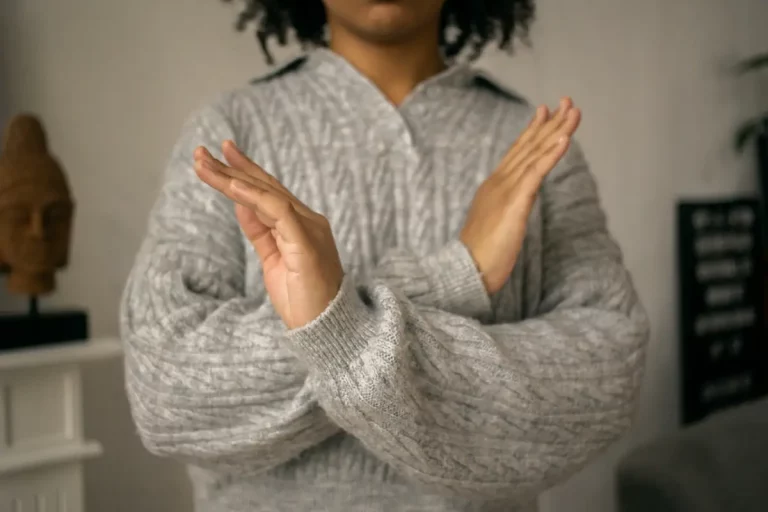5 Good and Bad Mannerisms that Influence your Hiring
In a job interview, your verbal communication skills, reasoning, and problem-solving skills are extremely important skills to demonstrate. However, very underrated are the importance of good and bad mannerisms or body language skills.
I have personally interviewed hundreds of candidates, and although getting a candidate with impressive skills is a given, the attitude and culture alignment are also key aspects of making a decision between a good and a great candidate.
Mannerisms or Body language is the way you express your feelings nonverbally, and it is the crucial index of your interest, comfort, and confidence to potential employers.
Body language is mostly a subconscious act, but controlling it with constant practice will enable you to create the best possible impression on your interviewer.
Your mannerisms during a job interview can either make or break you, so why not check out the following good and bad body language examples as it will enable you to ace your interview.
In this article, you shall learn more about the good and bad mannerisms you should exhibit and avoid during a job interview.
Highly Recommended Next Article:
10 Dos and Don’ts for Interview Presentations
5 Examples Of Good Mannerisms In A Job Interview
Sitting Up Straight during an interview
During a job interview, sitting firmly and keeping your back straight against the chair is positive body language as it displays confidence and assurance.
While sitting firmly, ensure your chin is up and shoulders down. You can also lean forward slightly to indicate interest in the conversation.
But do not recline to the chair completely as this may give an automatic sign of laziness or boredom.
Maintain eye contact with your interviewers
Do you have the habit of looking away while speaking and listening? Such action makes you appear distracted or apprehensive.
In a job interview, it is crucial to maintain eye contact with your interviewer regularly while speaking and listening but do not stare. Starting may denote aggression, disconcerting, and might freak the interviewer out.
As moderation is key to all things in life, your eye contact needs to be done moderately as this shows you are engaged in the conversation. It will also make the interviewer see you as a competent and confident candidate.
Eye contact is also important when shaking hands. And in a situation where there is more than one person in the room, make eye contact with each person.
Use of hand gestures while speaking
You can use your hands to make gestures while speaking to convey a point or express enthusiasm. This makes you look open and helps you to elaborate on what you are saying.
Hand gesture enables you to use your energy positively, and while doing that, ensure your motions do not become so enthusiastic that they swerve the attention from your words.
When you are nervous, you tend to hide your hands as they convey your anxiety. Keeping your hands hidden can give rise to distrust.
Avoid crossing your legs during an interview
Planting your feet on the ground is very important during a job interview as it can help you switch between creative thought and highly logical questions easily.
Crossed legs can make it difficult (but not impossible) to answer complex questions while in this position unless both feet are on the ground.
However, if you feel comfortable crossing your legs while sitting, it is advised that you do so at the ankle level. Doing so makes switching legs easier without being misinterpreted as fidgeting or distraction.
Be responsive
Besides keeping sufficient eye contact, nodding and smiling while listening to the interviewer is a way of showing attentiveness. This action also indicates that you understand and agree with the statement of the interviewer.
While it is good to nod in agreement, ensure it is done occasionally. Nodding to everything being said by the interviewer regardless of the message could make you look spineless, perchance somewhat sycophantic.

5 Examples of Bad Body Languages to Avoid During a Job Interview
Slumping during an interview
Slumping in your seat does not project confidence, and makes the candidate look uncivilized in a job interview.
Avoid slumping by sitting up with your shoulders down. This will not only make you look confident, but also show that you respect your interviewer.
Crossing your arms in an interview
Crossing your arms in front of your chest is not what an interviewer would like to see from a candidate because it indicates nervousness, hostility, and defensiveness.
For this reason, your hands need to be in front of you and be ready to gesture as this makes you appear open and approachable.
For the best interview impression, avoid crossing your arms and use hand gestures moderately.
Not maintaining eye contact with your interviewer
Most interviewers strongly dislike the failure of a candidate to make eye contact throughout the interview session.
During a job interview, avoiding eye contact is deemed as being distant, dishonest, and unreliable.
It is understandable that you might not want to get into an uneasy and fearful staring contest with your interviewer, but aim to make eye contact while listening and responding to questions.
This shows you are engaged and interested in the conversation but occasionally break the eye contact.
Touching your face unnecessarily during an interview
Touching your face or playing with your hair during a job interview is a no-no. Face touching is being interpreted as an act of deception.
Without a doubt, your nose or eye might be itchy, and when trying to touch them, you should do so in a civilized manner.
Fidgeting during an interview
If you are a hair-twirler, nail-biter, foot-tapper, knuckle-cracker, or you play with your jewelry, do not let these habits force an appearance during a job interview.
These restless habits convey nervousness, appear unprofessional, and are considered uncivil. An interviewer who sees you in these actions may suppose you are impatient or bored, which can be a big interview mistake.
In case you are likely to fidget during a job interview without realizing that you are doing so, try practicing with a friend. With this, your nervous gestures will be observed and corrected.
You can also remove the sources of fidgeting like pulling back your hair or leaving your jewelry at home. All these will help you to control your nervous gestures and also boost your level of confidence.
Wrap Up
Your job interview body language can uncover a lot about you. With good mannerisms, you increase the chance of getting a job offer, while bad body language can mar your job interview.
Although when you are nervous, natural tendencies are likely to occur. Therefore, you have to consciously surmount them by practicing as much as you rehearse the answers to interview questions.
This will enable you to ace your job interview with good body language that indicates you are a strong candidate for the job position.
References and Further Reading
ProSchool. Interview Preparation Tips: Body Language During Interview
INDEED. 18 Body Language Tips to Remember During your Next Interview
Mashable. 9 Simple Body Language Tips for Your Next Interview








